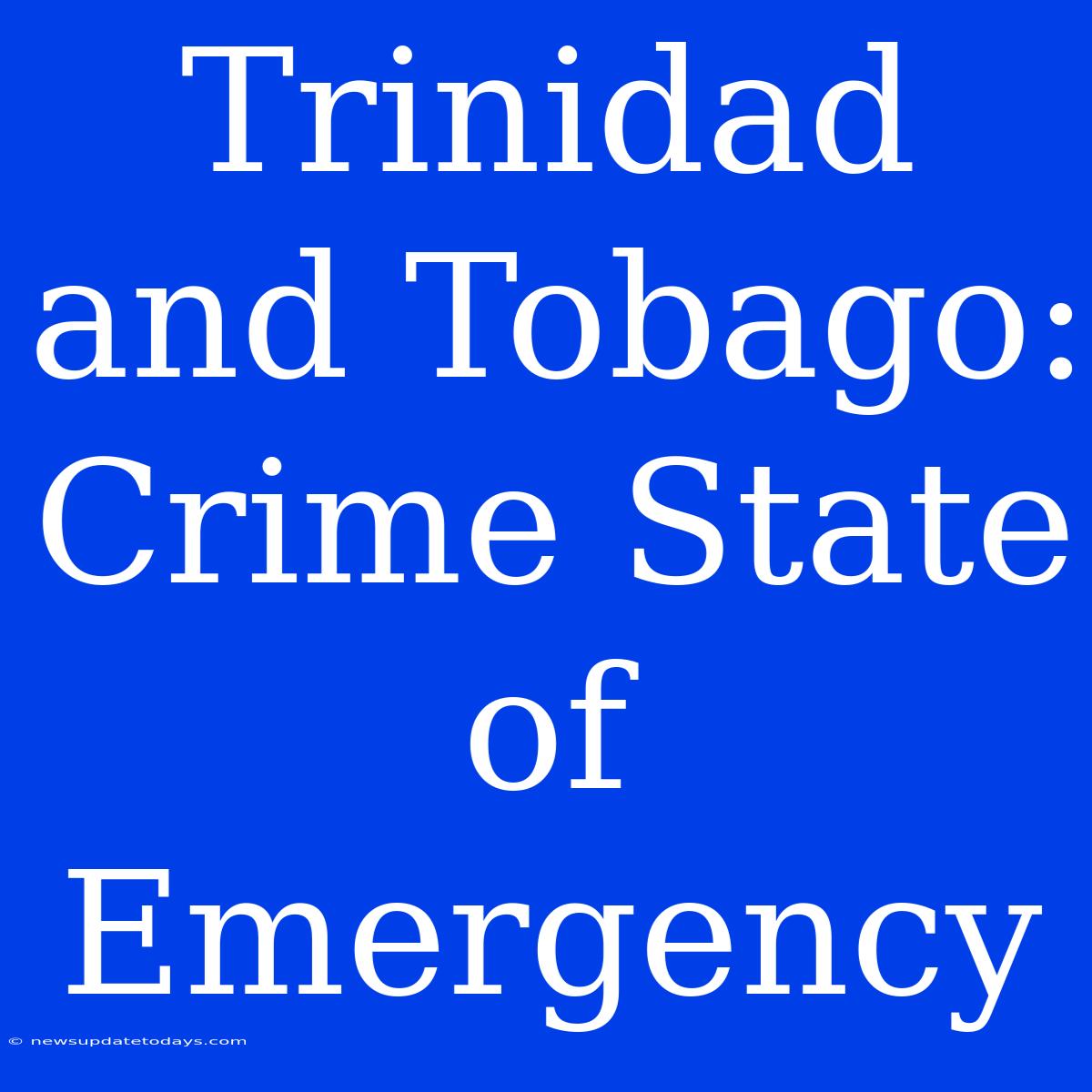Trinidad and Tobago: Navigating the Crime State of Emergency
Trinidad and Tobago, a twin-island nation known for its vibrant culture and stunning beaches, is grappling with a severe crime crisis. The declaration of a State of Emergency (SOE) reflects the gravity of the situation and the government's urgent efforts to curb escalating crime rates. This article delves into the complexities of the SOE, exploring its impact, effectiveness, and the ongoing challenges facing the nation.
Understanding the Crime Situation
Trinidad and Tobago has experienced a sustained surge in violent crime, including homicides, kidnappings, and armed robberies. The factors contributing to this complex issue are multifaceted and interwoven:
- Gang Violence: Powerful and well-organized gangs control significant territories, fueling a cycle of violence and retaliatory attacks. Their involvement in drug trafficking further exacerbates the problem.
- Socioeconomic Factors: High levels of poverty, unemployment, and inequality create fertile ground for criminal activity. Limited opportunities and a lack of social mobility contribute to desperation and a sense of hopelessness among some segments of the population.
- Gun Proliferation: The easy availability of illegal firearms significantly increases the lethality of crimes and emboldens criminal elements. Weak border controls and insufficient enforcement further contribute to the problem.
- Corruption: Allegations of corruption within law enforcement agencies undermine public trust and hinder effective crime-fighting efforts. This allows criminal organizations to operate with relative impunity.
The State of Emergency: A Necessary Measure?
The declaration of a State of Emergency grants the government extraordinary powers, enabling them to deploy the army, impose curfews, and conduct searches without warrants. The goal is to disrupt criminal networks, seize illegal weapons, and restore public order.
Arguments for the SOE: Proponents argue that the SOE is a necessary tool to address the escalating violence and restore a sense of security for citizens. They emphasize the need for strong, decisive action to dismantle criminal organizations and curb the flow of illegal weapons.
Arguments Against the SOE: Critics express concerns about potential human rights violations, excessive police powers, and the long-term effectiveness of such measures. They argue that a more holistic approach focusing on addressing underlying socioeconomic issues and improving law enforcement capacity is crucial for sustainable solutions.
Assessing the Effectiveness
The effectiveness of the SOE remains a subject of debate. While it may lead to a short-term reduction in crime, its long-term impact is questionable unless accompanied by comprehensive strategies addressing the root causes of crime. Analyzing crime statistics before, during, and after the SOE is essential to evaluate its true impact. Key indicators to consider include homicide rates, arrest rates, and the seizure of illegal weapons.
Moving Forward: A Comprehensive Approach
Addressing the crime crisis in Trinidad and Tobago requires a multifaceted strategy that goes beyond emergency measures. This includes:
- Strengthening Law Enforcement: Investing in training, equipment, and technology for police forces to improve their capacity to investigate and prosecute crimes effectively. Addressing corruption within law enforcement is paramount.
- Socioeconomic Development: Investing in education, job creation, and social programs to reduce poverty and inequality, providing opportunities for marginalized communities.
- Community Engagement: Fostering collaboration between law enforcement, community leaders, and citizens to build trust and improve intelligence gathering.
- Gun Control Measures: Implementing stricter gun control laws, enhancing border security, and cracking down on illegal arms trafficking.
The State of Emergency in Trinidad and Tobago represents a critical juncture in the nation's fight against crime. While it may provide temporary relief, lasting solutions require a comprehensive and sustained effort addressing the root causes of the problem and fostering a safer and more equitable society. The long-term success depends not only on effective law enforcement but also on significant societal transformation.

